What is Fistula?
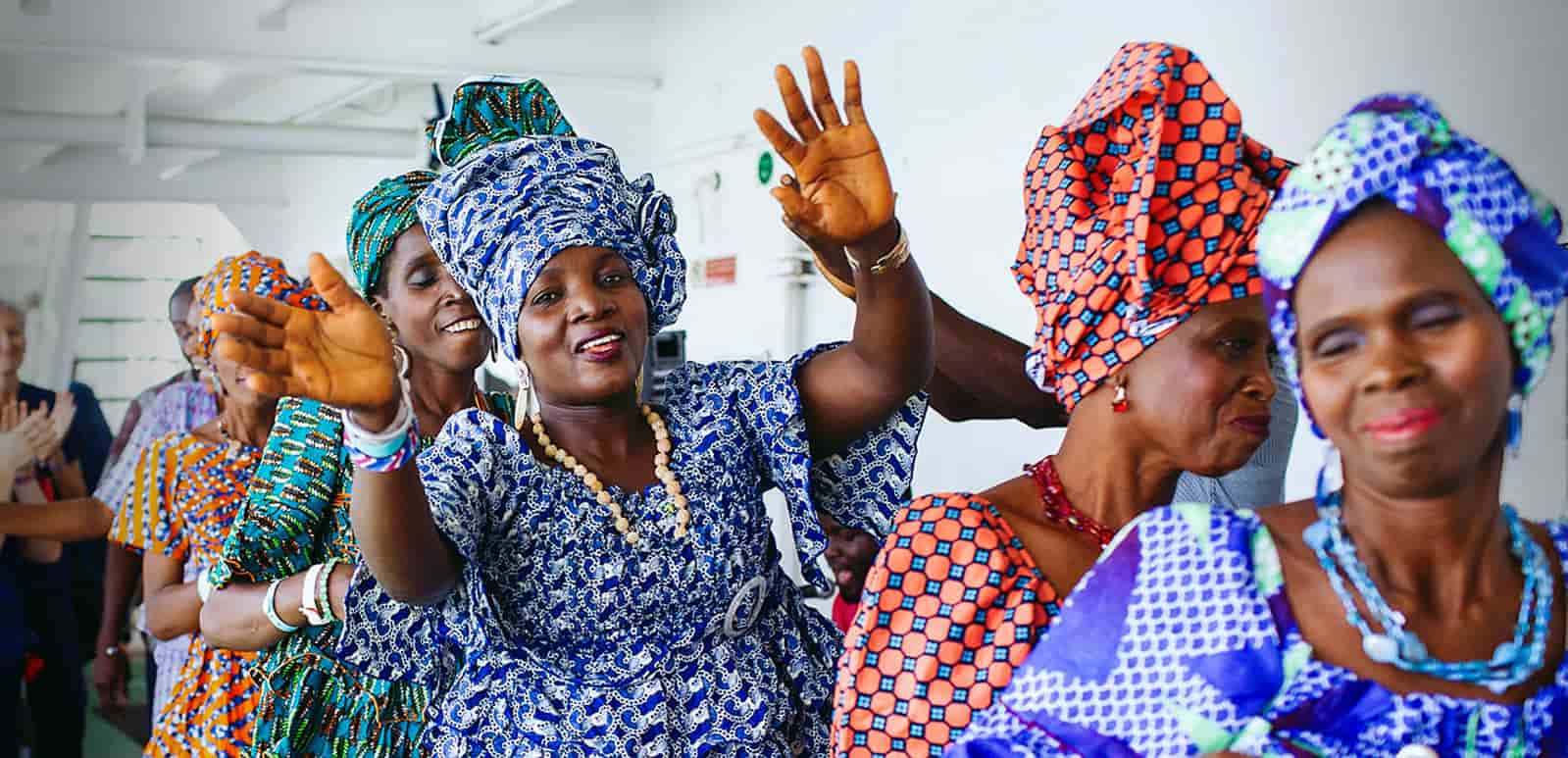
What is Obstetric Fistula?
Obstetric fistula is a devastating pregnancy-related disability that primarily affects young women from poor backgrounds. Fistula is usually the result of obstructed labour which means the baby does not exit the pelvis during childbirth due to being physically blocked. However, fistula is a preventable and mostly treatable condition.
Obstructed labour combined with a lack of skilled medical care and unaffordable caesarean sections, obstetric fistula most often leads to permanent incontinence – a continuous leakage of urine and loss of control over bowel movements.
How does it happen?
A vaginal fistula, which usually affects pregnant women, results from prolonged labour, usually lasting two to five days, with delivery happening only after the baby dies.
During labour, the baby’s head and the woman’s pubic bone form a vice, cutting off blood flow to the tissue trapped in this area. Following delivery, the dead tissue sloughs away, leaving an abnormal opening between the birth canal and the bladder (less frequently the rectum).
Unable to control the flow of urine (and/or faeces), the woman is perpetually wet and soiled. Affected women are often abandoned by their husbands and ostracised by their families and communities.
How does Mercy Ships help?
- Onboard our ship, the Africa Mercy, Mercy Ships performs free fistula repair operations for affected women. The healed patients are given new dresses and headdresses as symbols of their restored life.
- Mercy Ships aims to reduce the effects of fistula in women in Africa by providing specialised medical treatment and training.
- In addition to performing free fistula repair operations for affected women, Mercy Ships provides training and prevention to help build the capacity of healthcare systems in developing nations to address the condition of fistula. Mercy Ships networks with and provides training for local and international healthcare professionals including surgeons, nurses and traditional birth attendants.
Fistula statistics
- The United Nations Population Fund (UNFPA) estimates that every year between 50,000 and 100,000 women sustain an obstetric fistula during childbirth.
- The World Health Organization (WHO) estimates that more than two million women are currently living with obstetric fistulas, a large number of which are in Africa.
- Obstetric fistula is both preventable and treatable, a condition that no woman should have to endure. Poverty is the number one indirect cause of obstetric fistula around the world.
- Obstructed labour and obstetric fistula account for 8% of maternal deaths worldwide. Through fistula programmes that bring hope and healing, Mercy Ships aims to reduce the effects of fistula in women in Africa by providing specialized medical treatment and training.
- Mercy Ships uses its hospital ship and also partners with land-based programmes to deliver transformational healthcare to the forgotten poor.
What is the Mercy Ships Dress Ceremony?
- The Dress Ceremony restores dignity beyond surgery. Women afflicted by obstetric fistula are often outcasts from their own homes, their relationships lost, their clothes soiled. We send them back with a celebration and a new dress, symbolizing their newfound wholeness and a brighter outlook to the future.

Mercy Ships Welcomes Presidential Visit on board, in Toamasina Harbor
Presidential Visit: Malagasy president His Excellency Andry Nirina Rajoelina visited patients and volunteers on board Mercy Ships’ hospital vessel to see for himself the lives being transformed.

Day of the Seafarer: One Maritime Volunteer’s Story
On this Day of the Seafarer, Mercy Ships wants to honor all the people like Ishaka, volunteer assistant bosun on board the Global Mercy.

An Electrician’s Journey to Finding Purpose and Professional Growth
When Jean Jacques Diouf came on board for the 1st time, he’d packed his suitcase with enough supplies for one week. Learn more about his professional growth!
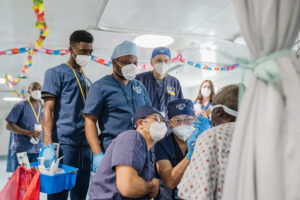
THE MSC FOUNDATION, THE MSC GROUP AND MERCY SHIPS INTERNATIONAL JOIN FORCES TO BUILD A NEW HOSPITAL SHIP
The new purpose-built hospital ship will expand the impact of Mercy Ships’ life-changing surgeries, anaesthetic care and surgical education for future generations of patients and healthcare professionals in sub-Saharan Africa.
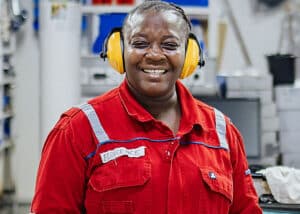
The Woman Who Forged Her Way Through Walls: Florence Bangura’s Story
Florence’s journey from oldest to newest Mercy Ship came full circle when she met the Global Mercy™ in 2023, the same year that the purpose-built hospital ship began welcoming its patients on board. Today, you can find Florence, now 49 years old, down in the engine room as a hotel engineering assistant.

Transforming Sierra Leone’s Healthcare: A Vision for Safe and Affordable Surgery
As experts from the surgical and healthcare world gather for the 64th Annual Conference and Scientific Meeting of the West African College of Surgeons in Sierra Leone this week, a profound dedication to advancing surgical knowledge and practice in the region is palpable. At the forefront of discussions lies the conference’s pivotal theme: access to safe and affordable surgical and anesthetic care in West Africa. This theme highlights the pressing need to address disparities in healthcare capabilities and capacities across the region, especially the critical importance of equitable access to quality surgical interventions.
Share
Related Posts
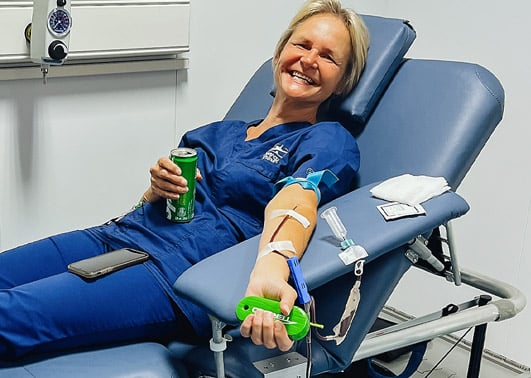
World Blood Donor Day
In a traditional medical setting, donors can be recruited ahead of time at blood drives, and their life-saving gifts can be sealed in bags and stored for later use. A Mercy Ships hospital, cut off from resources back home, is different. It must rely on the people who staff it.

Transforming Sierra Leone’s Healthcare: A Vision for Safe and Affordable Surgery
As experts from the surgical and healthcare world gather for the 64th Annual Conference and Scientific Meeting of the West African College of Surgeons in Sierra Leone this week, a profound dedication to advancing surgical knowledge and practice in the region is palpable. At the forefront of discussions lies the conference’s pivotal theme: access to safe and affordable surgical and anesthetic care in West Africa. This theme highlights the pressing need to address disparities in healthcare capabilities and capacities across the region, especially the critical importance of equitable access to quality surgical interventions.

A Franco-Canadian Onboard the Global Mercy
Now living in France, Léa works for Mercy Ships Canada remotely and “seized the opportunity” when the hospital ship Global Mercy came to Europe.
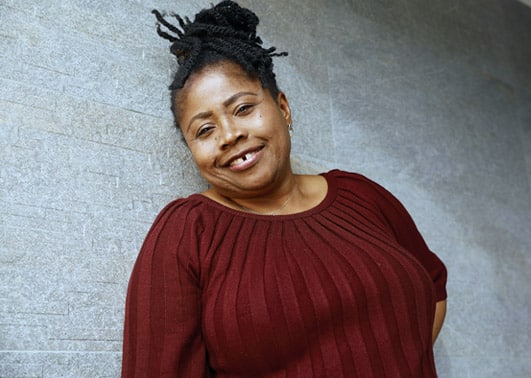
How One Act of Kindness Changed Everything
For Catherine Conteh, there’s a moment from the birth of her daughter that still plays over and over in her mind, 30 years later. Learn how one act of kindness changed everything.
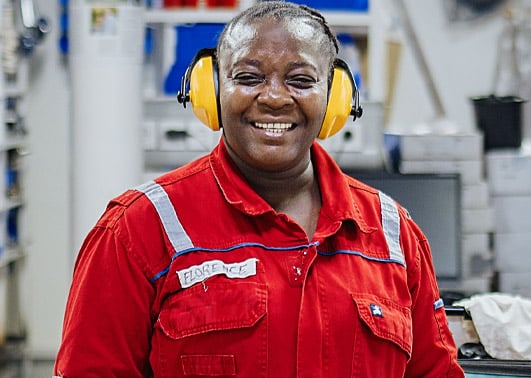
The Woman Who Forged Her Way Through Walls: Florence Bangura’s Story
Florence’s journey from oldest to newest Mercy Ship came full circle when she met the Global Mercy™ in 2023, the same year that the purpose-built hospital ship began welcoming its patients on board. Today, you can find Florence, now 49 years old, down in the engine room as a hotel engineering assistant.
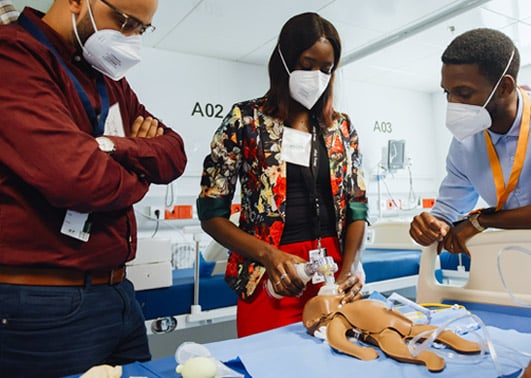
Safer Surgery for a New Generation: Pediatric Anesthesia Training in Senegal
In June 2022, more than 30 Senegalese healthcare professionals boarded the Global Mercy® to equip themselves with new skills that could save countless vulnerable young lives.
